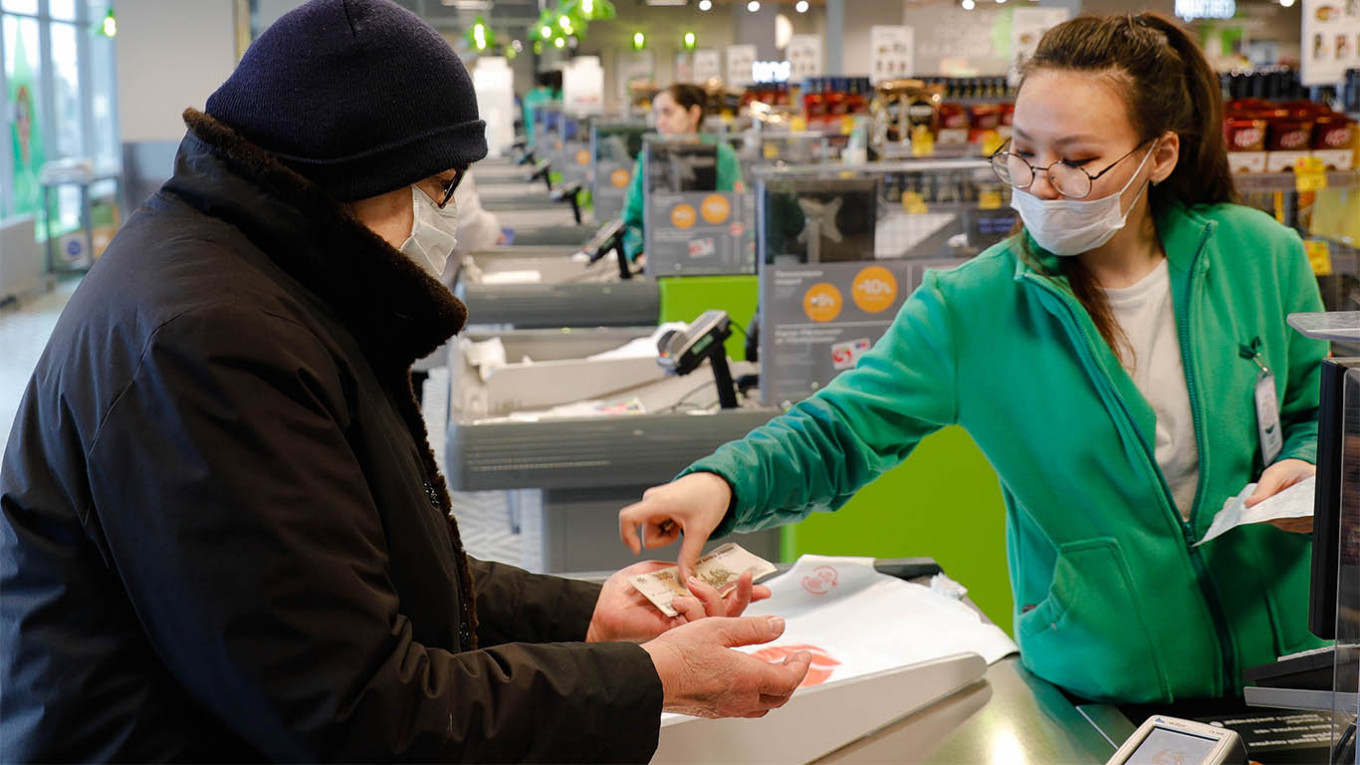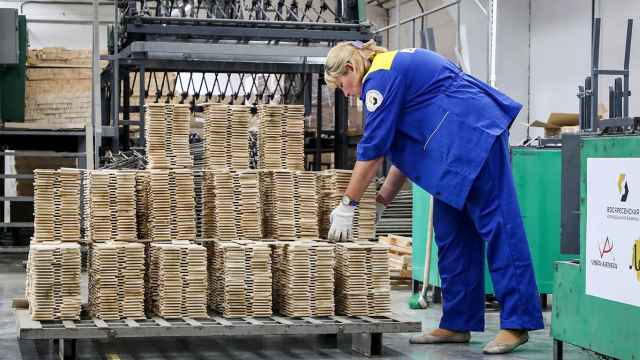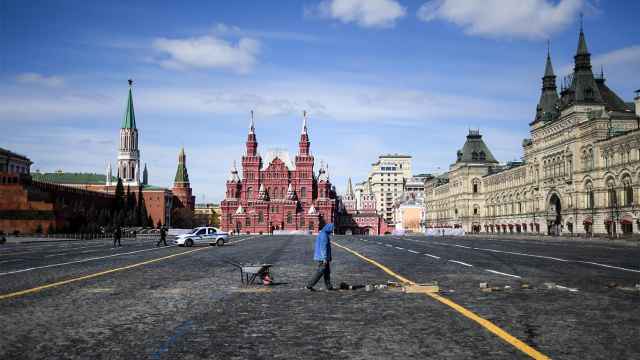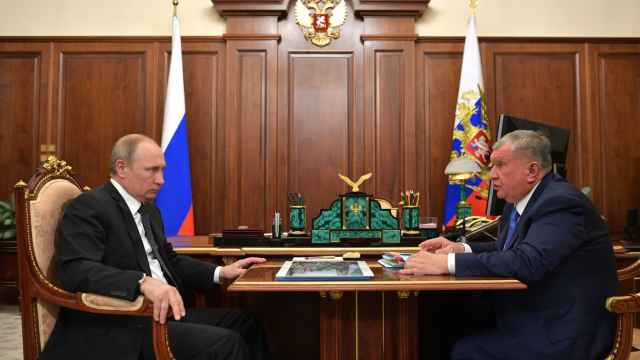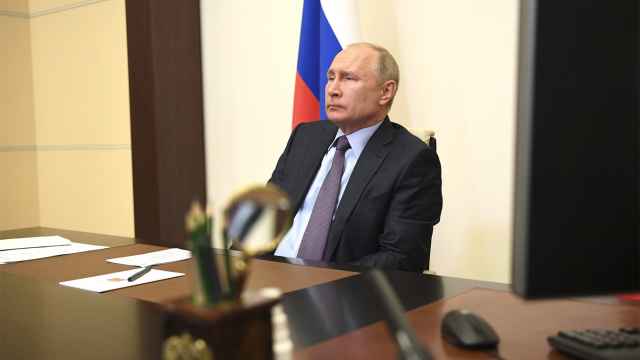Last week, Alla Komissarova sent a letter to her landlords, asking them to show a little flexibility towards the rent due for her two Moscow chocolate workshops over the next few months.
Hand-made cakes and artisanal confectionery are not top of many Muscovites’ shopping lists as consumers start to worry about the looming economic hit from the coronavirus pandemic, and income at one of her shops has fallen below 3,000 rubles ($38) a day.
“At most, that’s the salary of one clerk,” Komissarova told The Moscow Times.
“So, I sent them letters, requesting some kind of rent vacation or reduction. I hope that they will give me a month or two for free — or a 50% discount. But three or four days have passed now, and there has been no answer.”
Komissarova’s La Princesse Choco is just one of Russia’s almost six million small businesses, which account for a fifth of the Russian economy. President Vladimir Putin has big ambitions for the sector — he wants to boost their share to a third of Russia’s GDP over the next five years.
However, amid the economic fallout from the coronavirus — the worst of which has not yet reached Russia, say economists and epidemiologists alike — Russia’s smallest firms are under existential threat. It is unclear whether measures announced by Vladimir Putin in his first address to the nation Wednesday since the coronavirus pandemic emerged will be enough to help them.
In the address, Putin outlined new measures which he hopes will preserve employment by supporting employers.
“We need to help these companies continue stable work, which means that they need to retain their employees,” he said. “Our most important task, and I am now addressing all employers, is to ensure stability in the labor market and prevent a surge in unemployment.”

Putin offered small firms a tax vacation on all business taxes except VAT and commercial loan deferrals for six months. He also pledged to cut employers’ social insurance contributions from 30% to 15% of employees’ salary indefinitely. The government had also previously introduced a three-month delay on rental payments for small companies — but only those who lease directly from the state.
An extension of the tax holiday, which had already been granted to the travel sector, was top of many small business owners’ wish list ahead of Putin’s announcement, although the fact VAT was not covered was seen as a big blow.
Moreover, more radical ideas some businesses owners had been pushing for, such as government support with commercial rent payments, did not materialize. “It would be good to create special funds that subsidize rent, because the fall in customers in the next week will be huge,” said entrepreneur Dmitri Porochkin, who owns half a dozen barbershop and cafe franchises in Moscow.
Retailers’ associations responded to the speech by calling on the government to introduce a “rent amnesty” for all shops, except grocery stores, and a much more extensive tax vacation that includes VAT. Without more urgent government support, the shop owners warned Russia’s retail industry could fall back to 19th-century levels.
The package announced by Putin also underwhelmed economists, especially in comparison to the blowout measures adopted in other countries to support businesses and avoid a jump in unemployment. “Tax and loan holidays have been adopted in many countries,” said Sofya Donets of Renaissance Capital. “It’s very nice to say to businesses you don’t have to pay profit taxes for a while, but they likely won’t have any profit at all this year.”
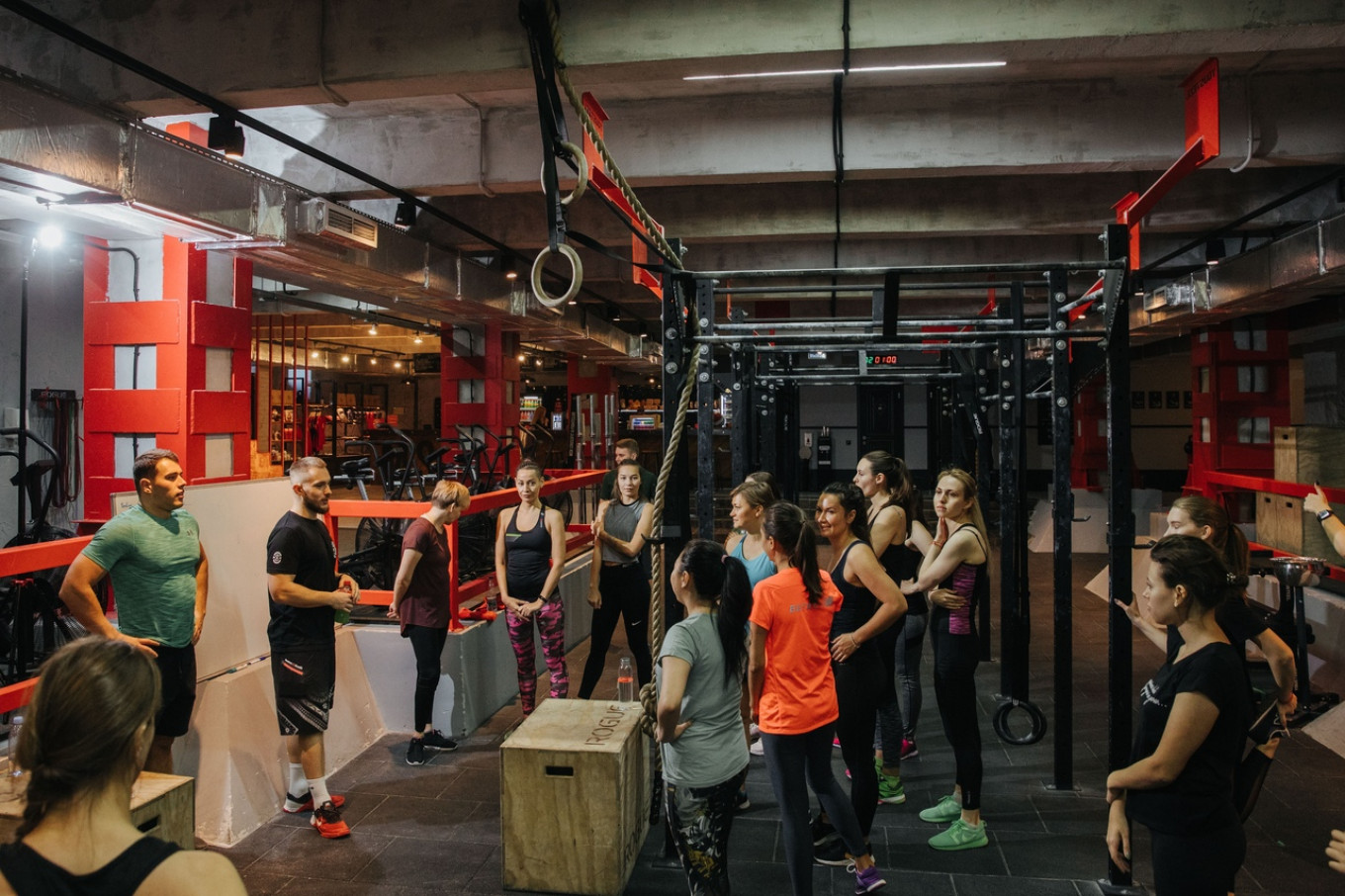
Germany and the U.S., by comparison, have proposed government subsidies for firms if they promise to keep paying staff through the crisis.
Meanwhile, the Russian government hasn’t been shy in threatening small businesses with the stick to go along with the carrots now on offer. Prime Minister Mikhail Mishustin promised swift inspections from Russia’s labor office, the Federal Tax Service and the General Prosecutor’s Office on any business “tempted to take advantage of the hype around the coronavirus” to fire staff.
With losses racking up daily, business owners The Moscow Times spoke to spent the hours after Putin’s speech scrambling around for more official information, trying to work out whether the measures would even apply to them, and how helpful they would be. Early fears are it could be too little too late, with worries compounded by the emergency week-long paid holiday, and a forced shutdown of bars, restaurants and shopping centres in Moscow due to start next week.
“So far, we have not let anybody go. But it depends on how the situation develops,” said Alexandra Gerasimova, co-founder of Fitmost, a Moscow-based fitness startup. “If this continues for two weeks or a month, then we will have to cut staff. We would not like to do that.” Putin’s new measures will do little to change that reality, she adds.
“Every day we are losing 50-75% of our income. I don’t know how we are going to pay our rent, taxes and salaries at the end of the month,” said Ekaterina Chegnova, co-founder of a network of language schools in Moscow. She also wanted the government to go further, including a relaxation of the strict liabilities and fines levied against employers if they pay staff late, in recognition of the extreme circumstances.
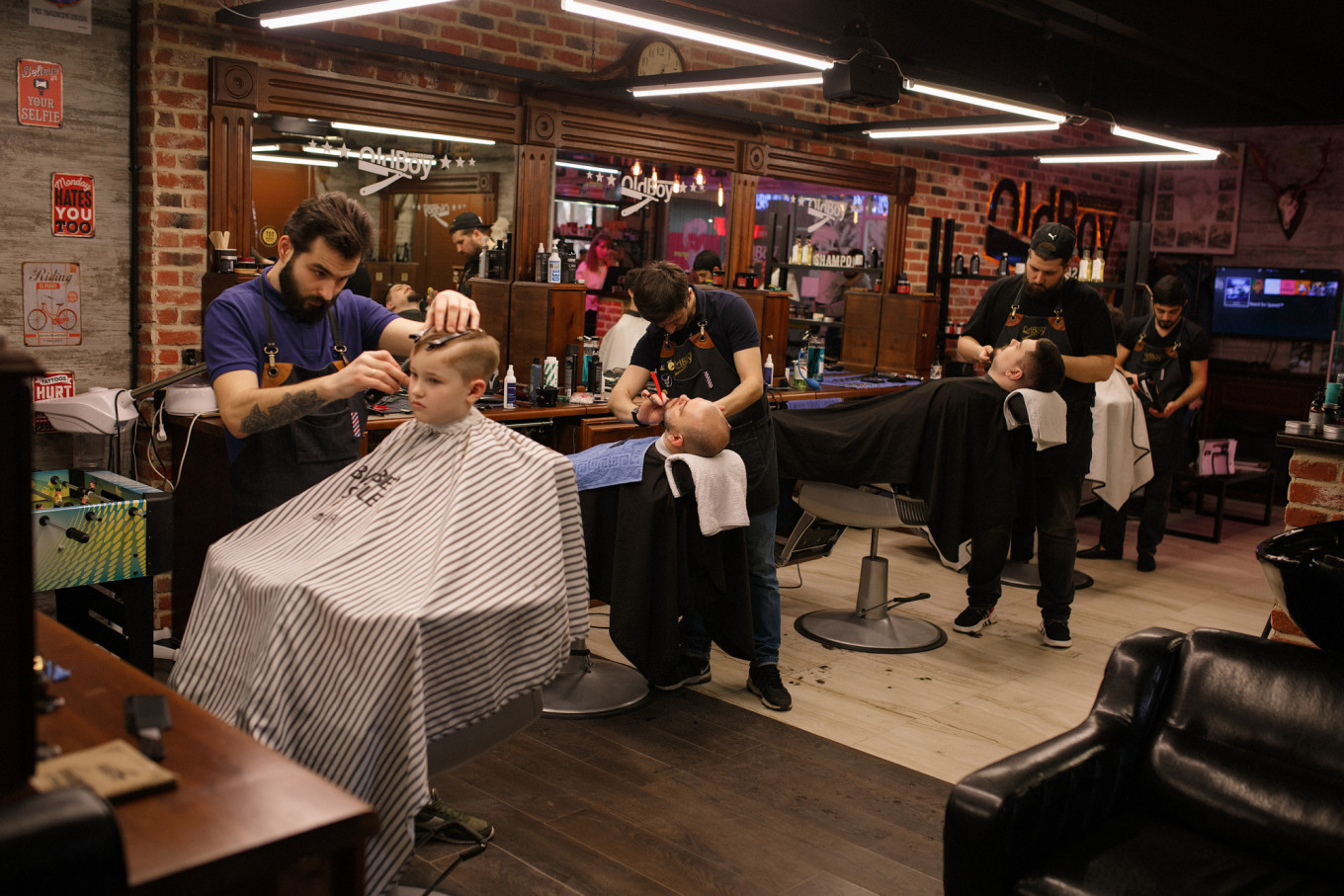
Without more direct support for those with commercial rent contracts, Pavel Illarionov, founder of The Coffee Soldiers, estimates 30% of Moscow’s coffee shops will be forced to close. That would mean the loss of 7,000 jobs.
For some, the government support is already too late to save jobs. Evgenia Sokolova, co-founder of backpack-maker Wild Bags, has already had to close an outlet in Yekaterinburg and let eight of her 18 employees go. The rest have seen their hours cut. Like Komissarova, she is also trying to negotiate a rent discount with her landlord in Moscow, and says a lack of state support has exacerbated the crisis.
“The government doesn’t believe in small businesses. The feeling’s mutual. And judging by the government’s current policies it will stay that way for a long time.”
The week-long fully-paid emergency national holiday Putin announced could cause even more problems for firms already reeling from weeks of lost income. “Forcing small businesses, which are already breathing hard, to pay a week’s wages for forced leave is another step to ruin them,” Alexander Chepurenko, a professor at Moscow’s Higher School of Economics told business daily RBC. He argued the Kremlin should follow the German and U.S. model of offering subsidies to businesses on the condition they don’t fire staff.
Many experts welcomed Putin’s address Wednesday more for the shift in rhetoric from the Kremlin than the actual measures laid down. It showed the Russian authorities are “waking up to the reality of the crisis,” Elina Ribakova, deputy chief economist of the Institute for International Finance told The Moscow Times.
“This is just the beginning,” said Donets. “The disruption to economic activity will be much longer. Everybody understands that this one-week holiday won’t last just one week.”
Small businesses across Russia were left hoping more disruption could mean more support — and quickly. “For the services sector, the next four weeks will be indicative: life or death,” Porochkin said.
A Message from The Moscow Times:
Dear readers,
We are facing unprecedented challenges. Russia's Prosecutor General's Office has designated The Moscow Times as an "undesirable" organization, criminalizing our work and putting our staff at risk of prosecution. This follows our earlier unjust labeling as a "foreign agent."
These actions are direct attempts to silence independent journalism in Russia. The authorities claim our work "discredits the decisions of the Russian leadership." We see things differently: we strive to provide accurate, unbiased reporting on Russia.
We, the journalists of The Moscow Times, refuse to be silenced. But to continue our work, we need your help.
Your support, no matter how small, makes a world of difference. If you can, please support us monthly starting from just $2. It's quick to set up, and every contribution makes a significant impact.
By supporting The Moscow Times, you're defending open, independent journalism in the face of repression. Thank you for standing with us.
Remind me later.



